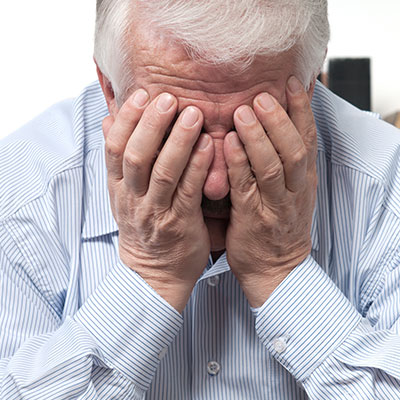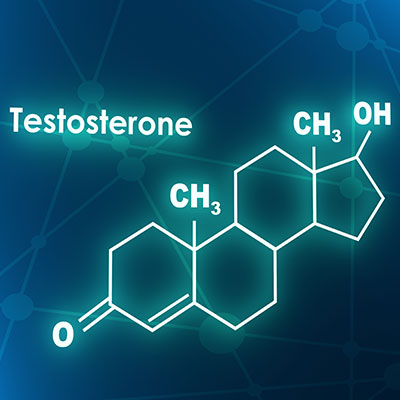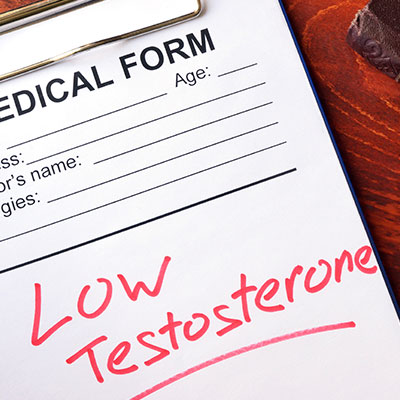Night Sweats and Low Testosterone
Contents
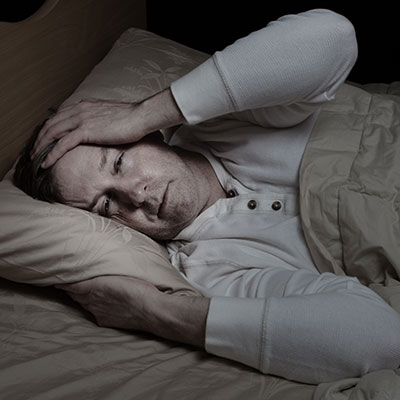
Some sweating at night is perfectly normal. However, night sweats are characterized by intense sweating at night, often so severe that you awake with your sleep clothes and blankets drenched in sweat.
That kind of profuse nighttime sweating is usually associated with menopausal women. However, men too can suffer from night sweats, and just as hormones are behind the condition in women, in men, night sweats could be a sign of low testosterone.
While night sweats in men are quite often linked to low levels of testosterone, night sweats can also be caused by other conditions. If you often find yourself awakened by a puddle of sweat or are having trouble getting to sleep because of excessive sweating, make an appointment with your doctor. They can help diagnose the cause of your symptoms and recommend the best treatment plan.
Causes of Night Sweats
There has definitely been a link established between low testosterone and night sweats in men. However, according to the Sleep Foundation, there can be several other causes of night sweats in men. Other possible causes include:
- Your body is making too much thyroid hormone
- Stress and anxiety
- Too much alcohol
- Sleep apnea
- Exercise
- Infections including tuberculosis (TB), infection of the heart’s valves, or HIV.
- Some cancers, including leukemia and Hodgkin lymphoma
- Certain medications including, selective serotonin reuptake inhibitors (SSRIs) and tricyclic antidepressants, aspirin, ibuprofen, and other nonsteroidal anti-inflammatory drugs (NSAIDs)
Low Testosterone Levels for Men and Women
Testosterone levels in both men and women change as they age. Any chart of testosterone levels by age will provide the information for men or for women as a range. This is because everyone’s body reacts to their individual level of testosterone differently. Two people of the same age with the exact same level of testosterone could be feeling very differently. What may cause one person to have symptoms of low testosterone could have the other feeling just fine.
Here are the normal testosterone levels for women across their lifespan:
- 0-5 months old: between 20-80 ng/dl
- 6-9 years old: below 7-20 ng/dl
- 10-11 years old: below 7-44 ng/dl
- 12-16 years old: below 7-75 ng/dl
- 17-18 years old: between 20-75 ng/dl
- 19 years old and older: between 8-60 ng/dl
Here are the healthy testosterone levels for men across their lifespan:
- 0-5 months old: between 75-400 ng/dl
- 6-9 years old: below 7-20 ng/dl
- 10-11 years old: below 7-130 ng/dl
- 12-13 years old: below 7-800 ng/dl
- 14 years old: below 7-1,200 ng/dl
- 15-16 years old: between 100-1,200 ng/dl
- 17-18 years old: between 300-1,200 ng/dl
- 19 years old and older: between 240-950 ng/dl
As you can see, women’s bodies make and need testosterone, but at a significantly lower level than men.
Stress and Anxiety and Low Testosterone
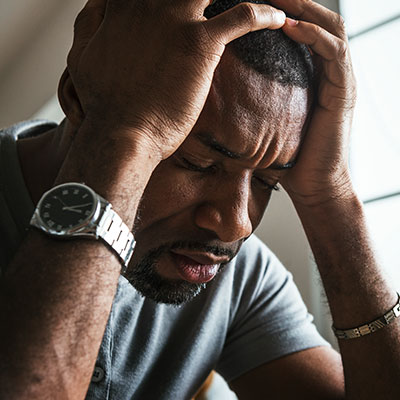
Stress and anxiety make sweat glands more responsive, and people with high stress or anxiety levels are more likely to experience night sweats. These effects are true for both short-term and chronic anxiety, with some research showing that even the stress of trying to solve a math problem can affect sweat gland responsiveness.
Treatment for Low Testosterone
Low testosterone can cause many debilitating symptoms other than night sweats. Low testosterone is treated with testosterone replacement therapy. Testosterone replacement therapy can be used for men or women, but it is primarily used to treat men with low testosterone.
The symptoms of low testosterone can include:
- Night sweats
- Diminished sex drive and erectile dysfunction
- Low energy and fatigue
- Loss of muscle mass and increased body fat
- Loss of facial and/or body hair
- Memory loss and other cognitive difficulties
- Mood swings such as increased anger, depression, and irritability
- An overall sense of feeling poorly
Besides reducing your night sweats and the stress and anxiety that may be causing them, some of the other benefits of testosterone therapy for men include:
- An increased ability to build lean muscle and increased muscle mass – This is often also accompanied by fat loss because testosterone not only improves your ability to burn fat but, as you build more muscle mass, your metabolism heats up even further.
- Increased energy levels – Another primary complaint of men with low testosterone is low energy or chronic fatigue. Testosterone therapy improves your cells’ ability to turn calories into energy.
- Improved sex life – Testosterone therapy helps improve libido or sex drive, enhances your ability to perform sexually, and can help to reduce or eliminate symptoms of erectile dysfunction.
Tips to Reduce Night Sweats
If your night sweats are not being caused by a specific hormonal condition such as low testosterone in men or menopause in women, there are some lifestyle changes you can make that may help you to avoid them. Here are some tips that may reduce the occurrence of night sweats.
Lifestyle changes may help prevent some causes of night sweats. To lower your risk of experiencing night sweats:
- Limit your consumption of alcohol and caffeine
- Avoid using tobacco and drugs
- Sleep in a cooler environment
- Consider getting a cooling mattress.
- Try to maintain a moderate weight
- Avoid eating spicy food if you have menopause, as it can worsen symptoms
If you suspect your night sweats are related to hormone decline, hormone imbalance, an infection, or other illness, get prompt medical attention. Ask your doctor for more information about your specific condition, treatment options, and strategies to prevent night sweats.
When to See a Doctor About Night Sweats

Other signs that you should talk to your doctor include:
- Sleep disturbances
- Fatigue, weakness, or excessive daytime sleepiness
- Weight loss unrelated to lifestyle or diet changes
- Mood changes
- Fever
Even if you do not have an underlying condition causing your night sweats, you may want to speak to your doctor about treatment options if night sweats interfere with your ability to sleep comfortably.
Studies on Low Testosterone and Night Sweats
According to a 2002 paper entitled Trusted sourcePrevalence of night sweats in primary care patients: an OKPRN and TAFP-Net collaborative studyPubMedGo to sourcePrevalence of Night Sweats in Primary Care Patients, men experienced night sweats differently than women, and night sweats in men were frequently accompanied by sleep apnea and obesity, which would seem to verify its connection to low testosterone because obese men and men with sleep apnea almost always suffer from low testosterone as well.
Night sweats are a common complaint of older men and women, yet since in and of itself, night sweats is not an overly serious condition, the medical literature on the subject is scarce. However, night sweats in men are almost always related to low testosterone and the other debilitating symptoms of low testosterone such as:
- Sexual health issues
- Chronic fatigue
- Weight gain
- Depression and anxiety
- Sleep disorders
- Cognitive difficulties
While specific medical studies on night sweats in men are scant, there is a wealth of studies that indicate the successful use of testosterone replacement therapy to treat the above symptoms in men with low testosterone.
Recently, researchers from the prestigious Perelman School of Medicine at the University of Pennsylvania, in association with a dozen other well-respected medical centers nationwide, conducted seven clinical trials in partnership with the National Institute on Aging to determine the value of testosterone replacement therapy for aging men. A recent landmark collective study known as the Trusted sourceResearchers Find Testosterone Treatment Improves Sexual Activity, Walking Ability and Mood in Men Over 65Penn Medicine NewsGo to source“Testosterone Trials” (TTrials) concluded that “The trials showed an improvement in all the aspects of sexual function and overall mood.”
The TTrials were a coordinated set of seven placebo-controlled, double-blind trials in 788 men with a mean age of 72 years, designed to determine the efficacy of increasing the testosterone levels of older men with low testosterone through the use of testosterone replacement therapies.
The findings of the Testosterone Trials were published in March of 2018. The key takeaways from the TTrials were that for older men with low testosterone, testosterone treatment for one year:
- Improved all aspects of sexual function
- Improved strength and mobility
- Improved mood and depressive symptoms
- Markedly increased bone mineral density and estimated bone strength.
Now that you know a lot more about night sweats in men and low testosterone, why not contact us and learn more about the many life-changing benefits of hormone replacement therapy?
FAQ
What Are Night Sweats?
Night sweats are heavy sweating during sleep. Night sweats are often so heavy that your clothing and sheets are soaked to the point that you have to change them.
Do Only Women Get Night Sweats?
No, men, as well as women, can suffer from night sweats. Men may experience night sweats for some of the same reasons as women do, such as infection and stress, but some causes differ between the sexes. Men do not experience night sweats as often as women do because menopause is a leading cause of night sweats. However, hormones play a role in night sweats among men, as low testosterone levels have been identified as a known cause of night sweats in men.
What Causes Night Sweats?
When most people think of night sweats, they think of menopausal women. While night sweats is indeed a problem caused by the hormonal changes of menopause, that is not their only cause. In men and in non-menopausal women, night sweats can be caused by:
- Your body is making too much thyroid hormone.
- Low testosterone
- Anxiety
- Too much alcohol
- Sleep apnea
- Infections. These could include tuberculosis (TB), infection of the heart's valves, or HIV.
- Some cancers, including leukemia and Hodgkin lymphoma.
Are Night Sweats Are Serious Problem?
Night sweats can be uncomfortable and disrupt your sleep, but in most cases, they're not a cause for serious alarm. However, sometimes, they may be caused by an underlying condition that requires treatment, such as low testosterone. Your doctor can help diagnose the cause of your night sweats and provide proper treatments if necessary.



